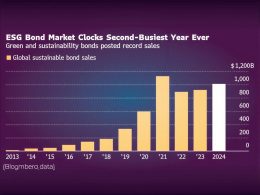European stock exchange operator Euronext has announced a significant reorientation of its ESG framework, redefining the acronym as “Energy, Security and Geostrategy” in a bid to channel investment into Europe’s defence sector and respond to emerging geopolitical realities.
The move marks a departure from the traditional Environmental, Social and Governance lens that has guided sustainable investing for years. It reflects mounting pressure from policymakers for financial institutions to support the continent’s military readiness and strategic autonomy, particularly following criticism from the Trump administration over Europe’s reliance on U.S. defence capabilities.
Euronext Chairman and CEO Stéphane Boujnah said the initiative was a response to a “new geopolitical order” and the urgent need for aerospace and defence companies to scale up innovation and production.
To facilitate this shift, Euronext said it would revisit the criteria used in ESG indexes to limit the current exclusions applied to defence companies. In line with regulatory guidance, it urged ESG ratings agencies to restrict the concept of “controversial weapons” to only those banned under international treaties, potentially allowing broader investor participation in defence-linked funds.
The exchange operator will also launch new thematic indexes focused on energy, security, and geostrategy, expanding the tools available to investors and asset managers seeking exposure to these sectors. These indexes, first unveiled in March, are expected to serve as performance benchmarks and form the basis for new financial products.
Euronext’s evolving ESG stance comes amid broader debates within the investment community over the role of defence in sustainable finance. With the European Union looking to mobilise up to €800 billion for defence spending, asset managers have come under growing pressure from both governments and clients to relax long-standing restrictions on arms-related investments.
Although Euronext pledged to support IPOs and fast-track bond listings in the defence space, analysts remain cautious. “ESG redefinitions may ease regulatory barriers, but investors will still weigh reputational and ethical considerations,” said ING’s Reg Watson.
Euronext operates exchanges in Amsterdam, Brussels, Dublin, Lisbon, Milan, Oslo and Paris. Its latest shift positions it at the forefront of efforts to reshape sustainable finance in line with Europe’s changing security priorities.
















